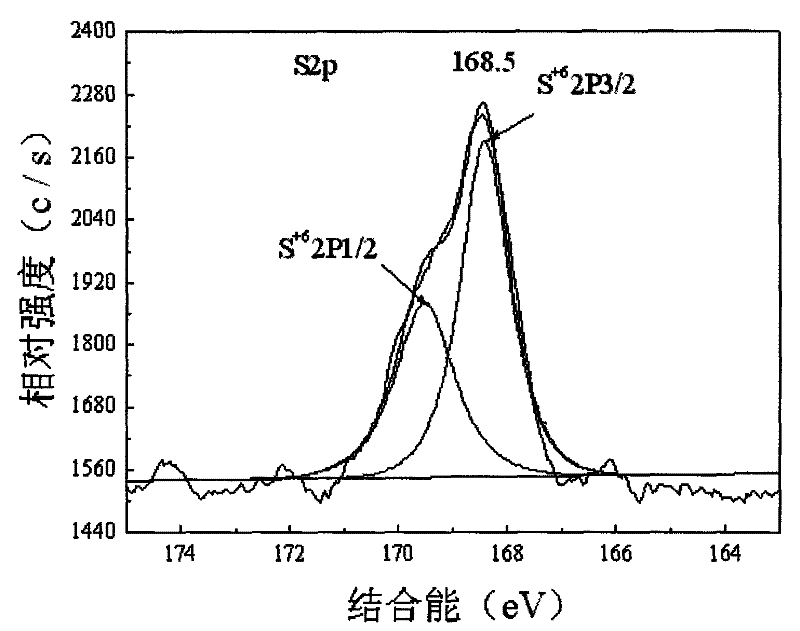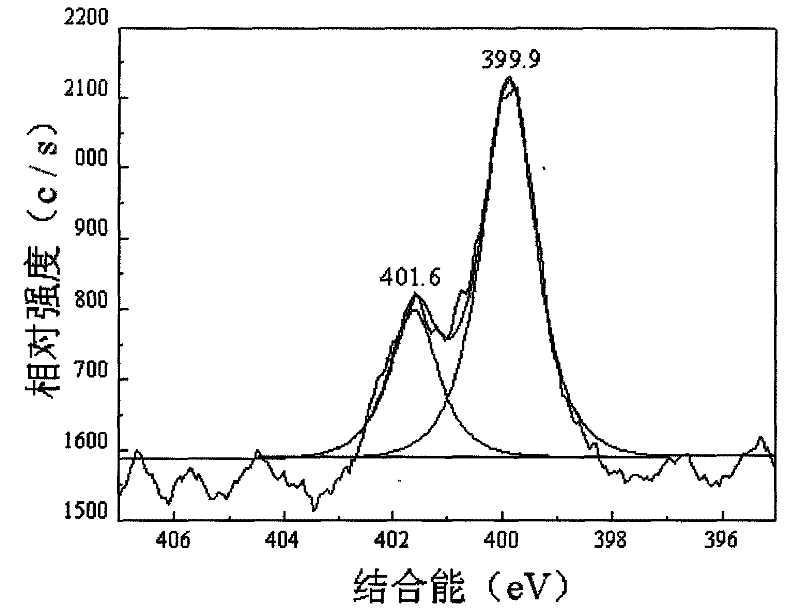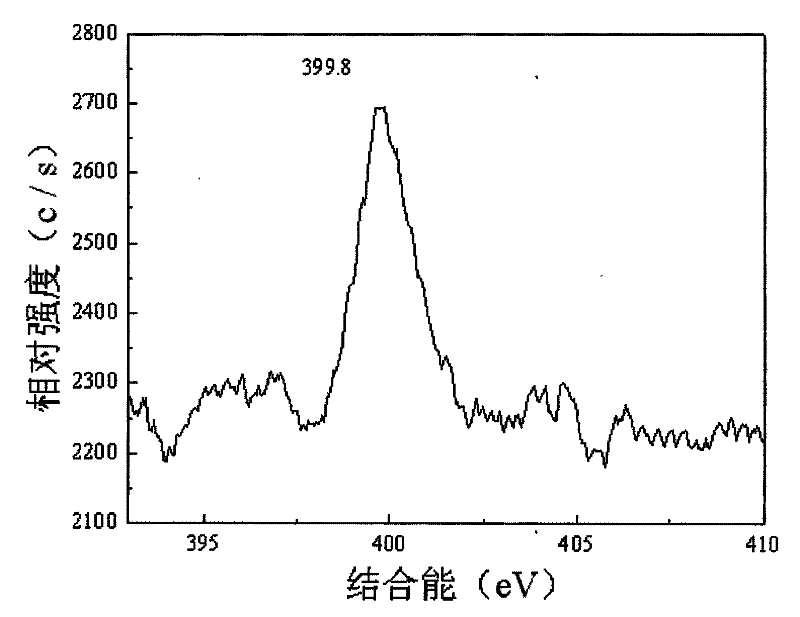Preparation method of composite photocatalyst CdS/n-TiO2 for catalyzing and decomposing H2S to prepare hydrogen
A technology of catalytic decomposition and composite light, applied in catalyst activation/preparation, physical/chemical process catalysts, chemical instruments and methods, etc., can solve the problem of low hydrogen production rate in photocatalytic decomposition, achieve inhibition of photocorrosion, simple process, The effect of cheap raw materials
- Summary
- Abstract
- Description
- Claims
- Application Information
AI Technical Summary
Problems solved by technology
Method used
Image
Examples
specific Embodiment approach 1
[0008] Specific embodiment one: in this embodiment, it is used to catalytically decompose H 2 Composite Photocatalyst CdS / n-TiO for Hydrogen Production from S 2 The preparation method is as follows: 1. Nano-TiO 2 Ultrasonic disperse in the dispersant for 0.5h-3h under the condition of ultrasonic power of 100W, then dry and grind at 85°C for 15min; 2 Raise the temperature to 400-800°C at a heating rate of 5°C / min-15°C / min, and then bake at 400°C-800°C for 1h-4h to obtain n-TiO 2 ; Three, the n-TiO 2 Disperse in a cadmium salt solution with a concentration of 0.1mol / L to 0.5mol / L, and then add a vulcanizing agent solution with a concentration of 0.1mol / L to 0.5mol / L to obtain a yellow colloidal precipitate; where n-TiO 2 The mass ratio of cadmium salt to cadmium salt solution is 0.52:1, n-TiO 2 The mass ratio of the solute to the vulcanizing agent solution is 0.67:1; 4. Put the yellow colloidal precipitate obtained in step 3 into an autoclave lined with polytetrafluoroethyle...
specific Embodiment approach 2
[0011] Embodiment 2: This embodiment differs from Embodiment 1 in that the cadmium salt solution described in step 3 is a cadmium acetate solution, a cadmium nitrate solution or a cadmium chloride solution. Others are the same as in the first embodiment.
specific Embodiment approach 3
[0012] Specific embodiment three: the difference between this embodiment and specific embodiment one or two is that the vulcanizing agent solution described in step three is sodium sulfide solution, thiourea solution or thioacetamide solution. Others are the same as in the first or second embodiment.
PUM
 Login to View More
Login to View More Abstract
Description
Claims
Application Information
 Login to View More
Login to View More - R&D
- Intellectual Property
- Life Sciences
- Materials
- Tech Scout
- Unparalleled Data Quality
- Higher Quality Content
- 60% Fewer Hallucinations
Browse by: Latest US Patents, China's latest patents, Technical Efficacy Thesaurus, Application Domain, Technology Topic, Popular Technical Reports.
© 2025 PatSnap. All rights reserved.Legal|Privacy policy|Modern Slavery Act Transparency Statement|Sitemap|About US| Contact US: help@patsnap.com



